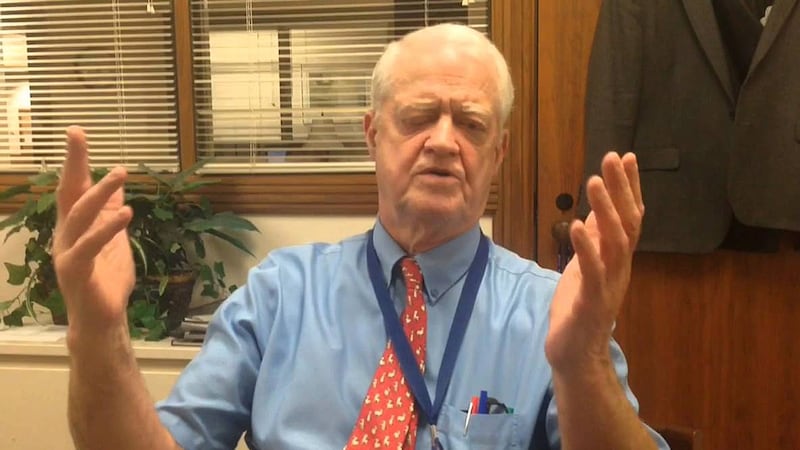National Popular Vote, Inc., a nonprofit group advocating for the replacement of the Electoral College, has launched an independent expenditure campaign against Oregon Senate President Peter Courtney (D-Salem).
The group has put up an "Enough Courtney" website and started today broadcasting television ads in Courtney's district.
The Legislature's longest serving member, Courtney, 74, won election to the Oregon House in 1980 and moved up to the Senate in 1998. He has been Senate president for eight terms and is the longest-serving Senate president in Oregon history.
National Popular Vote, Inc., the non-profit taking Courtney on, blames Courtney for blocking legislation in five sessions starting in 2007 that would have added Oregon to the list of states that have voted the national popular vote into law. (Those states include California and Washington.)
Currently, the president of the United States is elected in a "winner-take-all" system that confers all the electoral votes of a state to the candidate who gets the most votes in that state. That system allows president to win election without getting the most votes. Twice in the past five elections, of course, the winner got fewer votes that his opponent (Gore v. Bush in 2000 and Clinton v. Trump in 2016).
Eleven states representing 165 election votes have made National Popular Vote law in their states. If states representing 270 electoral votes approve the concept then, according to the terms of an interstate compact, National Popular Vote would replace the Electoral College.
Although the 11 states that have passed National Popular Votes are predominantly Democratic, the concept recently won passage in the Arizona House and the Oklahoma Senate, both of which are Republican-controlled.
Because of its modest population, Oregon only has seven electoral votes. But given that it is one of only six states in which Democrats control both legislative chambers and the governor's office, it is an outlier in not having approved National Popular vote.
National Popular Vote, Inc.'s founder and leading donor, Dr. John Koza, the former CEO of Scientific Games, Inc., says his group has never before targeted an individual politician.
"We haven't seen any other situation where a single person has repeatedly blocked legislation like this before," Koza says.
Koza says his group's polling found Oregonians support dumping the Electoral College and members of the Oregon House have repeatedly voted to switch to National Popular Vote.
"Oregon is an outlier and it's because of one person," Koza adds. "That's what caused us take this unusual step and tell as many people as we can about Sen. Courtney."
For most of his career, Courtney has enjoyed a safe seat. He announced recently that he'll seek re-election for another four-year term and hasn't yet drawn an opponent. Koza says he's not sure how much his group will spend on ads against Courtney but he says he hopes the effort will encourage a candidate to oppose Courtney.
Environmentalists and other progressive groups have been critical of his management of the Senate, so an independent expenditure campaign by an out-of-state group may mark the beginning of a concerted effort to challenge the veteran lawmaker.
Courtney responded to a request for comment with a statement:
"Changing the way Oregon's electoral votes are cast is a decision that should be made by Oregon voters," Courtney said. "I've made it clear that I would support putting the issue on the ballot. If you believe in the popular vote, then let the popular vote decide the issue."
